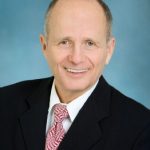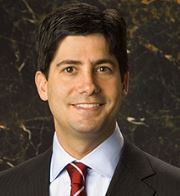Wikileaks, 02 Aug 2021
 On Monday February 27th, 2012, WikiLeaks began publishing The Global Intelligence Files, over five million e-mails from the Texas headquartered “global intelligence” company Stratfor. The e-mails date between July 2004 and late December 2011. They reveal the inner workings of a company that fronts as an intelligence publisher, but provides confidential intelligence services to large corporations, such as Bhopal’s Dow Chemical Co., Lockheed Martin, Northrop Grumman, Raytheon and government agencies, including the US Department of Homeland Security, the US Marines and the US Defence Intelligence Agency. The emails show Stratfor’s web of informers, pay-off structure, payment laundering techniques and psychological methods.
On Monday February 27th, 2012, WikiLeaks began publishing The Global Intelligence Files, over five million e-mails from the Texas headquartered “global intelligence” company Stratfor. The e-mails date between July 2004 and late December 2011. They reveal the inner workings of a company that fronts as an intelligence publisher, but provides confidential intelligence services to large corporations, such as Bhopal’s Dow Chemical Co., Lockheed Martin, Northrop Grumman, Raytheon and government agencies, including the US Department of Homeland Security, the US Marines and the US Defence Intelligence Agency. The emails show Stratfor’s web of informers, pay-off structure, payment laundering techniques and psychological methods.

 Congrats to America’s finance bros for finally getting their reward from the Chinese Communist Party. But surely, after obediently lobbying in favor of opening up to Beijing for decades, Wall Street deserved more than it received.
Congrats to America’s finance bros for finally getting their reward from the Chinese Communist Party. But surely, after obediently lobbying in favor of opening up to Beijing for decades, Wall Street deserved more than it received. Mary Lovelace Schapiro (born June 19, 1955) served as the 29th Chair of the U.S. Securities and Exchange Commission (SEC). She was appointed by President Barack Obama, unanimously confirmed by the U.S. Senate, and assumed the Chairship on January 27, 2009. She is the first woman to be the permanent Chair of the SEC.
Mary Lovelace Schapiro (born June 19, 1955) served as the 29th Chair of the U.S. Securities and Exchange Commission (SEC). She was appointed by President Barack Obama, unanimously confirmed by the U.S. Senate, and assumed the Chairship on January 27, 2009. She is the first woman to be the permanent Chair of the SEC. Gary J. Aguirre is an American
Gary J. Aguirre is an American  Kevin M. Warsh was sworn in as a member of the Board of Governors of the Federal Reserve System on February 24, 2006. He left the Board on March 31, 2011. In 1995, Warsh accepted a position with the mergers and acquisitions department at Morgan Stanley & Co. in New York. In 2002, Warsh left his vice president and executive director post at Morgan Stanley & Co. to join the administration for President George W. Bush. He served as special assistant to the president for economic policy and as executive secretary at the National Economic Council. In addition, he advises several companies including serving on the board of directors of United Parcel Service. He graduated from Stanford University(BA), and went on to Harvard Law School and received a law degree in 1995. He also completed coursework in market economics and debt capital markets at Harvard Business School and the Massachusetts Institute of Technology’s Sloan School of Management.
Kevin M. Warsh was sworn in as a member of the Board of Governors of the Federal Reserve System on February 24, 2006. He left the Board on March 31, 2011. In 1995, Warsh accepted a position with the mergers and acquisitions department at Morgan Stanley & Co. in New York. In 2002, Warsh left his vice president and executive director post at Morgan Stanley & Co. to join the administration for President George W. Bush. He served as special assistant to the president for economic policy and as executive secretary at the National Economic Council. In addition, he advises several companies including serving on the board of directors of United Parcel Service. He graduated from Stanford University(BA), and went on to Harvard Law School and received a law degree in 1995. He also completed coursework in market economics and debt capital markets at Harvard Business School and the Massachusetts Institute of Technology’s Sloan School of Management. Jerome H. Powell took office as Chair of the Board of Governors of the Federal Reserve System on February 5, 2018, for a four-year term. Mr. Powell also serves as Chairman of the Federal Open Market Committee. Prior to his appointment to the Board, Powell was a visiting scholar at the Bipartisan Policy Center in Washington, D.C. From 1997 through 2005, Powell was a partner at The Carlyle Group. Powell served as an Assistant Secretary and as Under Secretary of the U.S. Department of the Treasury under President George H.W. Bush. Prior to joining the Bush administration, Mr. Powell worked as a lawyer and investment banker in New York City. He received an AB in politics from Princeton University in 1975 and earned a law degree from Georgetown University in 1979. While at Georgetown, he was editor-in-chief of the Georgetown Law Journal.
Jerome H. Powell took office as Chair of the Board of Governors of the Federal Reserve System on February 5, 2018, for a four-year term. Mr. Powell also serves as Chairman of the Federal Open Market Committee. Prior to his appointment to the Board, Powell was a visiting scholar at the Bipartisan Policy Center in Washington, D.C. From 1997 through 2005, Powell was a partner at The Carlyle Group. Powell served as an Assistant Secretary and as Under Secretary of the U.S. Department of the Treasury under President George H.W. Bush. Prior to joining the Bush administration, Mr. Powell worked as a lawyer and investment banker in New York City. He received an AB in politics from Princeton University in 1975 and earned a law degree from Georgetown University in 1979. While at Georgetown, he was editor-in-chief of the Georgetown Law Journal.